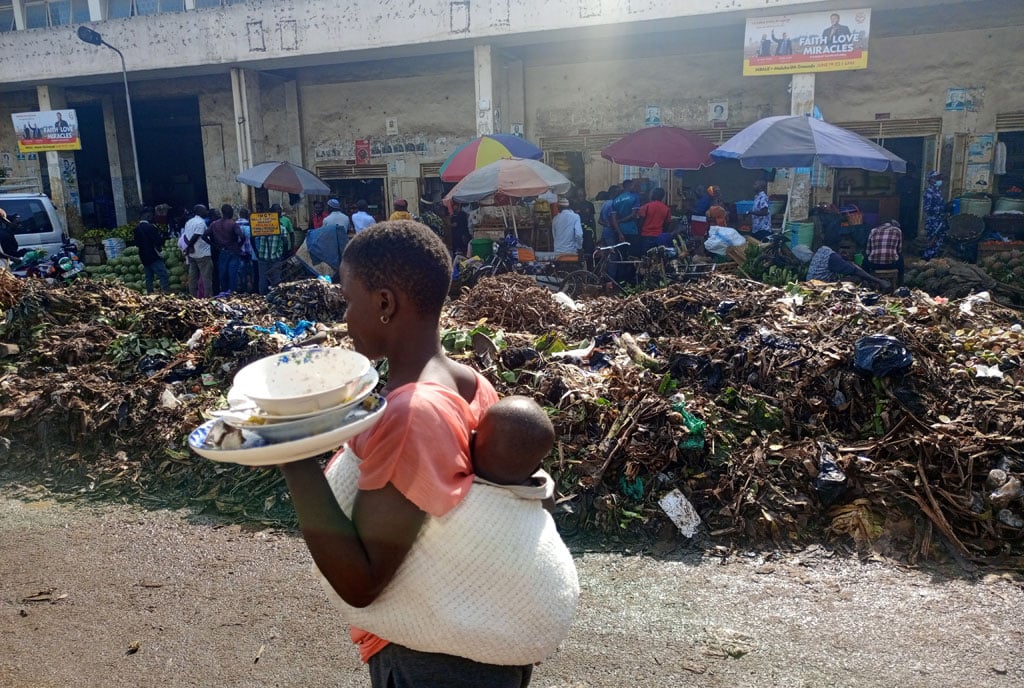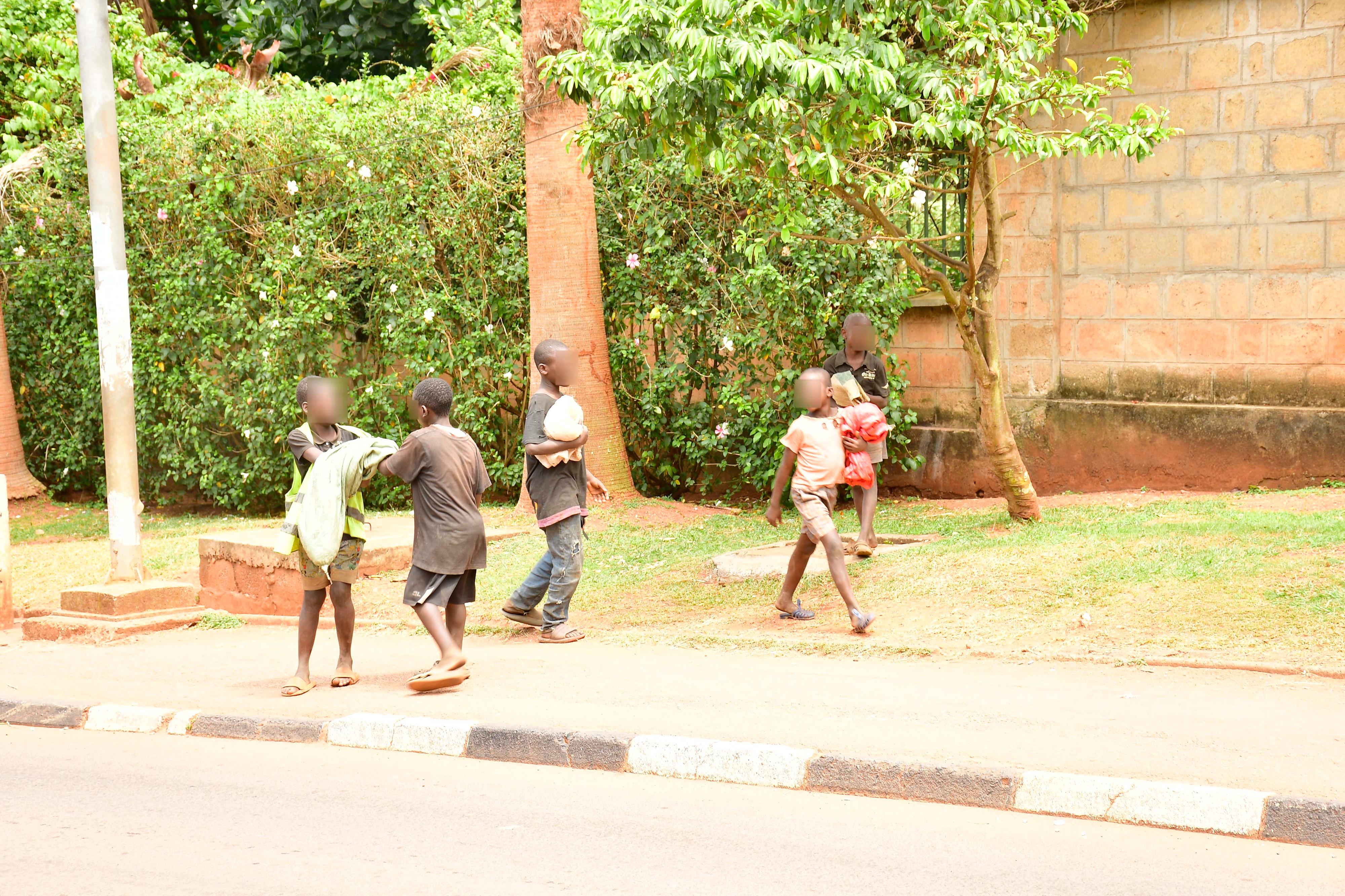Prime
Napak schools struggling to cater for resettled street children

A team from UNICEF led by the outgoing country’s representative Dr Munir Safieldin toured some of the facilities at Lotome girls' primary school where some of the former street children were enrolled. Photo/URN
What you need to know:
- Dr Munir vowed to lead advocacy efforts to ensure that schools accommodating former street children receive adequate support. Munir also promised to engage with the Minister of Education to ensure that the schools get more teachers, para-social workers, and necessary facilities.
Primary schools in Napak District, where former Karamojong street children were enrolled, are struggling to operate due to inadequate resources. Between February and June, a total of 425 children aged 3 to 15 years, who had been begging on the streets of Kampala, were repatriated and enrolled in schools in Napak District.
These children were placed in Lokodiokodio, Lodooi, and Lotome Girls Primary Schools for a one-year stay, without returning home or contacting their parents. Several partners, including UNICEF, Koinonia Ministries, Cooperation and Development, UWESO, Windle International Uganda, Dwelling Places, Welthunger, WFP, and the district local government, provided support in the form of scholastic materials, personal effects, and food items.
However, the schools continue to grapple with challenges such as understaffing, health issues, food shortages, inadequate accommodation, and the trauma experienced by children who have not seen their parents. The head teachers of the schools reported that the children were not screened for health conditions upon resettlement, leading to difficulties in managing health issues. The nearest health facility also struggles with drug shortages, which affects the children’s healthcare when they need treatment.
Ms Margaret Abura, the head teacher of Lotome Girls Primary School, mentioned that the school has children under the age of five, and they are struggling to cater to them. Abura explained that these younger children are often mixed with those above six years old, which disrupts the learning process.
She added that these younger children need special care from an early childhood development center, which is currently lacking at the school. She further expressed the need for more teachers, stating that the school has only seven teachers for 976 learners. Abura also pointed out that the school lacks adequate accommodation for both teachers and learners, with the few available houses for teachers in a dilapidated state. As a result, teachers are forced to rent accommodations at a trading center away from the school.
Abura also advocated for vocational training for the children, such as soap making, reusable pad production, and bakery skills. She emphasized that this would help the children meet their basic needs instead of relying on handouts from partners. She suggested that the children should also be trained in agricultural skills, so they can grow their food when they return home for holidays.
"We have children here who are under five. They need somebody to handle them in a separate way, in a different way, because when they are mixed up with the rest who are six and above, it becomes a challenge. They actually lose a lot," Ms Abura said.
She added that accommodation is still a challenge.
"We see some houses, which are meant to be for the teachers, are actually in a very sorry state. The houses there are no more of use. According to what I have seen, these girls, their potentials can be tapped," Ms Abura explained.
Ms Martha Nabok, the head teacher of Lokodiokodio Primary School, shared similar challenges with her learners. Nabok noted that the children often fall sick, and the nearest health facility is far from the school. She added that at times, the children are referred to Matany Hospital, which is private and charges for treatment.
She explained that the school lacks the funds to cover the children's medical expenses, with parents shifting the entire burden to the school, claiming it is the government's responsibility. Nabok appealed to the district authorities to provide funds to help cover the medical expenses of the children.
Nabok also highlighted the growing issue of feeding the children due to limited resources for purchasing food. She emphasized that feeding has become a serious concern, as the school cannot afford to provide meals for the children daily.
"When I was closing, I didn't have anything complete. The issue of the sickness, because of the distance, because it's two kilometers here, and sometimes the HCII runs short of the drugs. If there was some money for emergency somewhere, you know, in town is a private hospital. When the child is referred there, there's no way that the child is fed [or medicated]," Ms Nabok said.
Mr Robert Abia Owilli, the Napak Deputy Chief Administrative Officer, said that the issue of caring for the children is a national concern that should not be left solely to the district authorities. Owilli described the district’s decision to enroll street children in schools as the best approach to ending the cycle of street children.
Despite the challenges faced by the schools, Owilli noted that the children have shown significant improvement in their health. He recalled that when the children were brought from the streets of Kampala, many were malnourished and traumatized. Although partners have supported the children, Owilli acknowledged that the district is still struggling with sustainability, especially in terms of feeding and infrastructure.
He explained that the schools lack adequate facilities, with some classrooms being converted into dormitories and storage spaces. Owilli stressed the need for advocacy to secure more resources to achieve the goal of providing a better future for these children.
Dr Munir Safieldin, the outgoing UNICEF Country Representative, committed to working closely with the district leadership to ensure that all children are taken off the streets. Munir, whose career has focused on working with street children, emphasized the importance of getting all loitering children off the streets and into schools.
He vowed to lead advocacy efforts to ensure that schools accommodating former street children receive adequate support. Munir also promised to engage with the Minister of Education to ensure that the schools get more teachers, para-social workers, and necessary facilities.
Munir called on UNICEF to continue supporting the schools and resettled children.




